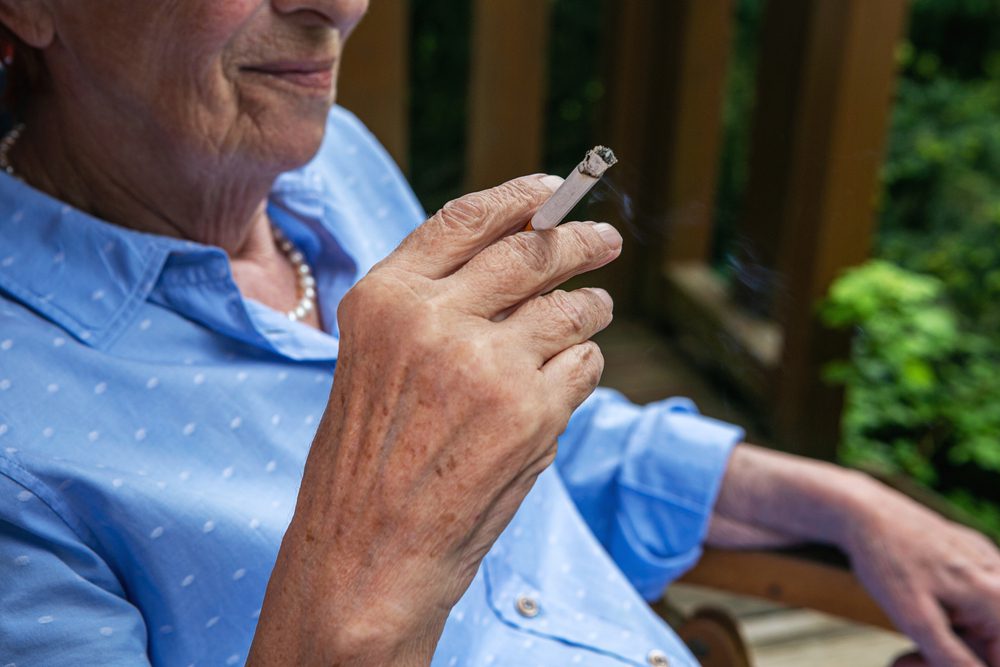Which are the worst retirement habits?
Diabetes has become one of the most common health conditions people tend to develop owing to their day-to-day lifestyle habits. According to World Health Organization estimates, more than 420 million people worldwide have diabetes. And this number is going up. It’s cause for alarm, isn’t it?
As you do your groceries, you pick up a couple of glossy iced donuts because they look so great, and you deserve a treat, right? But before you grab those tempting baked goods, consider this: These seemingly harmless day-to-day diet choices aren’t linked just to the obesity pandemic in the US but also to the worldwide surge in type 2 diabetes.
If you’re in your golden years, it’s even more important to pay attention to factors that can increase your risk of developing certain diseases. We’ve rounded up some of the worst retirement habits to ditch—before a diabetes diagnosis forces you to.
Let’s get started!

1. Skipping breakfast
According to experts, skipping breakfast is one of the worst retirement habits that can increase your diabetes risk. Now, it’s true that there’s been a lot of back-and-forth over the importance of breakfast to your health.
But a meta-study (a review of several studies) published in 2019 in The Journal of Nutrition showed that those who skip breakfast are at greater risk of developing diabetes than those who sit down for their eggs or oatmeal. It seems that the magic isn’t in the meal itself but in how those who had breakfast were able to maintain a healthy body mass index (BMI).
That’s likely due to the fact that skipping breakfast sets you up to overeat the rest of the day, dietitians point out, which makes it one of the worst retirement habits. Even if you don’t feel hunger pangs, you think you are entitled to more food. Whether it’s a bigger serving or more snacks, you feel tempted to eat more.
If you’re not a fan of traditional breakfast foods, that’s OK. Don’t forget that there are no rules about what foods need to be consumed at breakfast—choose those that are easy and that you enjoy. Melted cheese in a tortilla with an egg and some avocado? Sure, that can do the job.
A high-protein smoothie made with cottage cheese or yogurt and berries can also be breakfast. Just make sure you include fat and protein (cheese, egg, nut butter, and tofu), as well as a fiber-packed carb such as whole-grain toast or whole fruit.
Coffee lovers, we also look at you: A recent meta-study suggests regular coffee consumption may reduce the risk of type 2 diabetes. This applies to both caffeinated and decaf coffee. The experts say at least part of the reason has to do with the phytochemicals found in coffee, which are known to help preserve pancreatic beta cell function.
2. Drinking more than a glass of wine or two daily
There’s nothing wrong with having a glass of wine. But everything that goes beyond this amount can become one of the worst retirement habits.
Studies show that within limits, alcohol is linked with several health benefits, including decreased clots, reduced inflammation, and decreased insulin resistance, which is associated with type 2 diabetes.
To reap only the rewards of alcoholic beverages, follow the recommendation of the American Diabetes Association and limit consumption to two drinks per day for men and one per day for women. And aim to eat as you sip.
In other words, drinking alcohol can be a healthy but also some of the worst retirement habits; it depends on how much of it you have. In a study of around 312,000 drinkers, participants who consumed moderate amounts of alcohol with meals had a 12% lower risk of getting type 2 diabetes compared with those who drank outside meals.
It’s important to note that the links between drinking a moderate amount of alcohol and lowering your risk for diabetes aren’t definitive. However, researchers point out that it’s known that too many calories—and alcohol can have many—can lead to weight gain, and having excess weight is a risk factor for type 2 diabetes.
It’s easy for the plan to have “just one drink per day for my health” to turn into one of the worst retirement habits. Before you realize it, the possible health benefits have been wiped away with the extra calories and likely weight gain.
But that’s not all; according to the Mayo Clinic, too much alcohol can lead to severe inflammation of the pancreas, which can hinder its ability to secrete insulin, potentially leading to diabetes.
3. Sitting for longer than 30 minutes at a stretch
No matter the age category, regular exercise is key to reducing the risk of several diseases, including diabetes. What you may not know is that sitting for long periods—on the couch, at the computer, at the wheel—is one of the worst retirement habits.
A study of over 475,000 participants found that replacing just half an hour a day of sedentary behavior with some kind of physical activity was shown to ward off a diabetes diagnosis by 6 to 31%. The experts pointed out that strenuous sweat sessions proved to bring the greatest benefit.
That’s the reason why the American Diabetes Association recommends everyone—even those who don’t have diabetes—leave the chair or couch every 30 minutes and do some form of light activity.
As one of the worst retirement habits, sitting for prolonged periods of time can do more harm to your body than you can imagine. To break it, start by noting how much time you spend sitting. Then find ways to reduce that amount. An option is to set the alarm on your phone to stand up and move around a few minutes every 30 minutes.
Interrupting sitting with frequent movement increases insulin sensitivity and improves how well your metabolism works. According to a recent study, the positive effect of doing that may kick in after only three months.

4. Smoking
Smoking is by far one of the worst retirement habits. The Centers for Disease Control and Prevention data shows that smokers are 30 to 40% more likely to get a diabetes diagnosis than nonsmokers, and heavy smokers have an even greater risk.
Researchers can’t pinpoint a direct cause-and-effect link, given how other risk factors—such as diet, stress, distribution of body fat, and levels of physical activity—are difficult to separate. However, a meta-study suggests that at least 25 million cases of diabetes worldwide may be directly attributed to cigarette smoking. No wonder it’s one of the worst retirement habits.
Struggling to kick it? Talk to your doctor about what approach makes sense for you. A 2020 report suggests that a combination of smoking cessation medications (such as Zyban and Chantix), nicotine replacement therapy (such as lozenges, gum, nasal spray, and patches), and behavioral support may double your chances of quitting one of the worst retirement habits.
5. Skimping sleep
It isn’t the occasional episode of insomnia that wreaks havoc and increases your risk for diabetes. It’s night-after-night, chronic sleep deprivation that makes your body more prone to developing diabetes, making it one of the worst retirement habits.
In a study of about 337,000 people, participants who reported difficulty staying asleep or getting to sleep had higher levels of blood sugar than those who said they rarely had sleep issues. In other words, insomnia may raise the risk of diabetes.
Experts explain that this happens because, with ongoing sleep loss, hormone levels can get out of balance. As a result, your body may produce more stress hormones, such as cortison, which spikes blood sugar.
Moreover, less insulin is released after meals, leading to even higher blood glucose levels. These two factors explain why sleep deprivation is one of the worst retirement habits, and combined over time, they raise the risk of getting diabetes and explain
But that’s not all. Studies show that poor sleep (in terms of both quality and quantity) reduces your level of satiety and pushes up your appetite, causing you to crave sweets and carbs in particular.
As one of the worst retirement habits, skimping on sleep can have a serious effect on your health, which is why it’s important to break the cycle of sleepless nights. Here’s a book that helped many people deal with insomnia!

6. Eating processed foods
Next on the list of some of the worst retirement habits is consuming processed foods such as many deli meats, microwaveable dinners, and cereals. These foods have been shown to increase the risk of depression, cardiovascular disease, and cancer.
Moreover, each 10% increase in the amount of ultra-processed goods in participants’ diets was linked with a 15% higher risk of getting diabetes. Gaining weight is partially the cause of that. Experts found that those who ate more ultra-processed foods tended to have lower-quality diets, eat more calories overall, and be more likely to be inactive and obese.
Generally, more processed foods don’t provide the fullness that whole foods do, dietitians explain. Including them in your diet is one of the worst retirement habits, and it often correlates with a higher calorie intake. Too many calories eventually lead to excess weight, which in turn leads to an increased risk of insulin resistance.
An easy way to spot highly processed foods: Check the list of ingredients, and if you see a long list of unpronounceable ingredients, that’s your cue to leave the product on the shelf.
7. Lacking quality connections with others
If there’s one lesson the COVID pandemic has taught us all, it’s that spending prolonged periods of time away from family and close friends can take a toll. Moreover, experts say this is one of the worst retirement habits. In a survey conducted by the US Census Bureau during the pandemic, more than 42% of respondents reported symptoms of depression or anxiety.
Several studies, including a new one published in the journal Diabetologia, show that prolonged loneliness—as opposed to lacing contact with others or living alone—can increase your risk for type 2 diabetes. Research participants who felt most lonely were two times more likely to get a type 2 diabetes diagnosis than those who didn’t feel lonely.
Although they aren’t quite sure why, experts say focusing more on the quality of social relationships than the quantity may help lower the risk of type 2 diabetes.
If you liked our article on the worst retirement habits, you may also want to read 9 Worst Foods to Eat Before Bedtime.

























